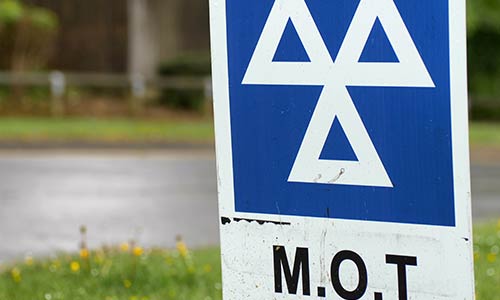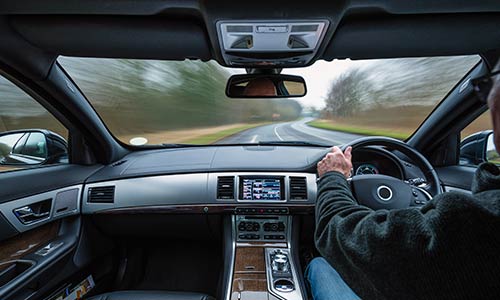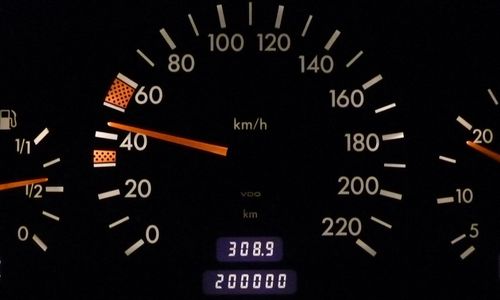
Can I drive my car if it fails its MOT?
Last updated April 14, 2023
Annual MOT tests are mandatory for most vehicles, unless they are exempt from requiring an MOT certificate.
During an MOT test, a vehicle is checked against a set of standardised criteria to ensure it is safe for use on the roads (and meets the minimum environmental standards). Therefore, in most cases, you will also need an MOT to tax your car.
If you have taken good care of your vehicle (and serviced it regularly), it should hopefully pass its next MOT with no problems. Unfortunately, an MOT inspection can sometimes reveal unexpected issues, leading to an MOT failure.
You might be wondering, can I drive my car if it fails its MOT? Depending on the circumstances, you might not be able to drive your car to a scrapyard - or even park it on a public highway until you have obtained a valid MOT certificate.
In this guide, we will clarify when you can drive a vehicle that has failed its MOT – and when it is against the law to drive car without an MOT.
Value your car in under 30 seconds
Can I drive my vehicle if it fails its MOT?
If your car has failed its MOT, you can still drive it, providing no ‘dangerous’ faults were highlighted during the test and your previous MOT certificate is still in date.
To check your vehicle’s MOT expiry date, enter its reg number into our free MOT check tool.
If your vehicle has failed its MOT, but its current MOT certificate is still in date
If your vehicle fails an MOT test, but your most recent MOT certificate is still in date, you can drive it on the road, providing no ‘dangerous’ faults were highlighted during the test.
Remember, you will still need to arrange the necessary repairs and an MOT re-test if you intend to continue driving the vehicle after the current MOT expiry date.
If you drive your vehicle after failing an MOT with one or more ‘dangerous’ faults, you could be fined up to £2,500 and receive three penalty points on your licence – or even a ban from driving, regardless of whether the existing MOT certificate is in date.
Bear in mind that even if the faults that caused you to fail your MOT are not ‘dangerous’, your vehicle is not in optimal working order. Therefore, if the police stop you and an officer determines that your vehicle is unfit for use on the roads, you could still be prosecuted.
So, if you fail an MOT test for any reason, you should arrange for the relevant repairs to be carried out at a trusted local garage as soon as possible.
If your vehicle has failed its MOT and the most recent certificate has also expired
If your vehicle is over three years old and does not qualify for MOT exemption, you cannot use it on the roads without a valid MOT certificate.
If you fail your MOT test on the day your current MOT certificate is due to expire, there are only two circumstances in which you can drive your vehicle:
- You may take your vehicle to a test station for a pre-booked MOT test.
- You may take your vehicle to a garage to rectify the faults highlighted by your failed MOT test.
Driving your car for any other reason would be against the law. If you are stopped by the police, the officer may ask for proof that you are driving your vehicle for one of the valid reasons highlighted above. (For instance, you may be asked to show a booking confirmation from the garage you are driving to.)
What’s next?
You might be wondering what to do if your car has failed its MOT. There are several options at your disposal:
Repair and retest your car
If the MOT test centre also offers repairs, you may be able to leave your vehicle with them, so that one of their mechanics can carry out the necessary repairs in preparation for an MOT re-test.
Providing the repairs are completed within 10 working days of the failed MOT, the tester can then carry out a ‘partial retest’, where the vehicle is only checked for the faults highlighted on the original failed test.
Some test centres will retest your vehicle free of charge, providing you leave the vehicle with them. If your car failed its MOT without any ‘dangerous’ faults, you also have the option to take it to another garage for repairs, then return it to the test centre for a partial retest. However, if you decide to do this, the test centre may charge you a reduced fee for the partial retest.
If you return your car to the test centre more than 10 working days after the original failed MOT, you will have to pay the full MOT test fee.
Sell or scrap your MOT failure
If you decide that rectifying the faults highlighted by your failed MOT would be too expensive, selling (or even scrapping) your car can help you raise money to put towards a more reliable vehicle.
Unfortunately, most dealerships will not buy cars that have failed their MOT. Selling your car privately can also present a challenge, but with a little luck and perseverance, you might be able to find a willing buyer. Alternatively, you can sell your car to a car-buying service (such as webuyanycar).
You can also scrap your car at a scrapyard or Authorised Treatment Facility (ATF) (and many car-buying services (including webuyanycar) also buy ‘scrap’ cars).
Please note: If your vehicle does not have a valid MOT, it cannot be driven and therefore, you (or the buyer) will need to arrange for it to be transported at the point of sale.
Can I appeal against an MOT result?
Yes, if your car fails its MOT test, you can appeal against the result by submitting a VT17 form (available from the gov.uk website) to the DVSA. For a more detailed explanation of the process to follow, please see our guide to getting an MOT retest.
What is included in an MOT test?
An MOT test includes the following points of inspection:
- Horn.
- Seatbelts/SRS (Supplemental Restraint System)
- Steering and suspension.
- Exhaust system.
- Wipers/washers.
- Mirrors.
- Windscreen.
- Doors.
- Electrical wiring and battery.
- Exhaust emissions.
- Lights.
- Towbar.
- Registration plates.
- Boot/tailgate.
- Bonnet.
- Seats.
- Tyres, wheels and TPMS (Tyre Pressure Monitoring System).
- Body/vehicle structure/general items.
- Brakes.
- Fuel system.
For a full explanation of the current MOT testing requirements, please see our comprehensive MOT checklist.





